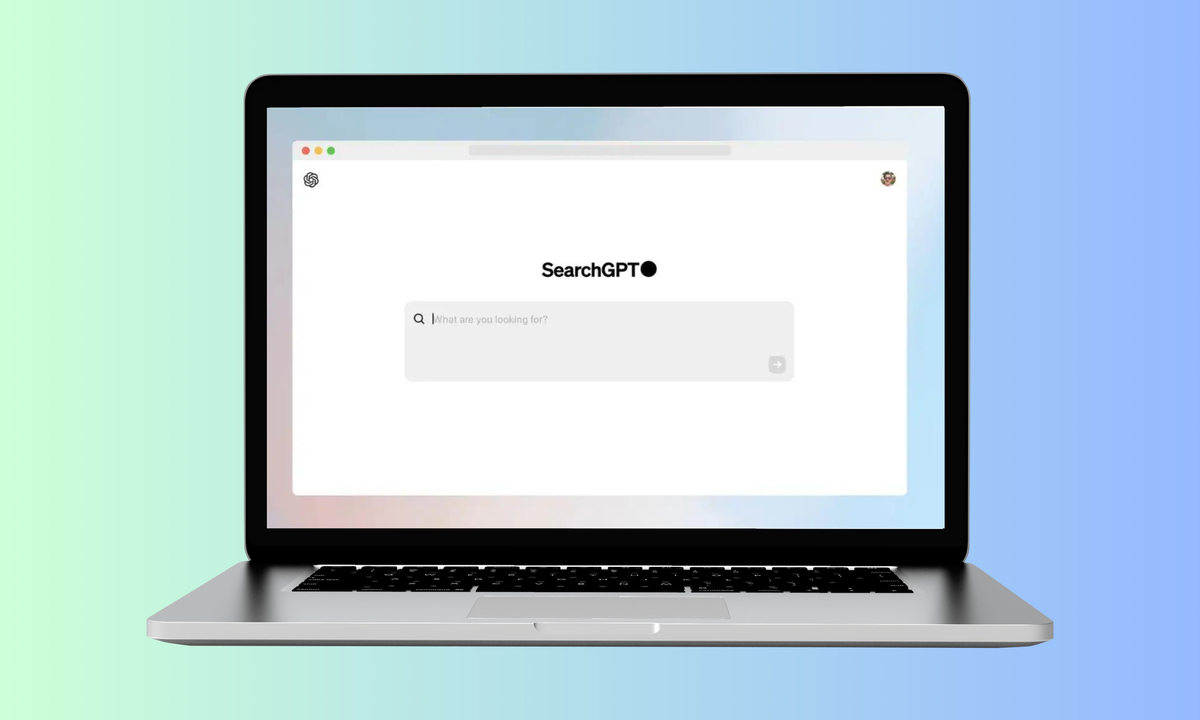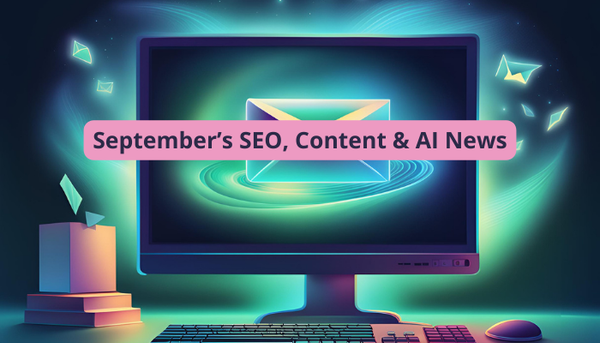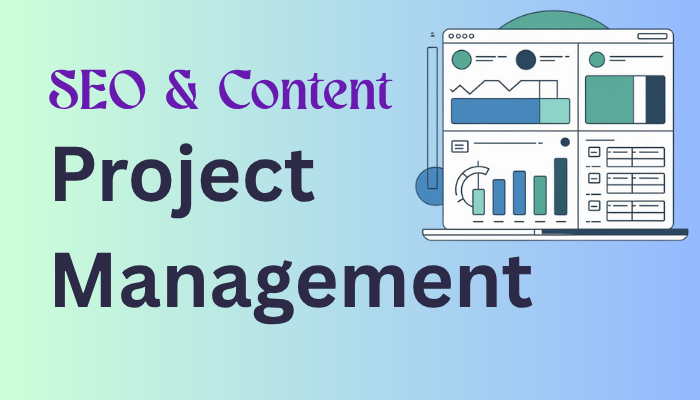SearchGPT: Google's New Rival?
Is the era of traditional search engines coming to an end? OpenAI's SearchGPT is poised to revolutionize how we find information online. But what does this mean for SEO, content creators, and the future of digital marketing? Dive into our analysis to discover more.

TL,DR
SearchGPT is OpenAI's AI-powered search tool challenging Google's dominance. Key features include a conversational interface, real-time web access, and clear source attribution. While promising, it faces adoption and accuracy challenges. SearchGPT aims to provide more intuitive search experiences but may impact publisher traffic. Its success could disrupt the search market, though Google's entrenched position makes a complete takeover unlikely in the near term.
Introducing SearchGPT
Let's face it, the AI search game is getting crowded. You've got Google throwing AI Overviews at you, Perplexity trying to be the smart kid in class, and You.com... well, doing its thing. Now SearchGPT's joining the party, and you're probably wondering how it stacks up.
In this post, we'll dive into what makes SearchGPT tick, how it stacks up against Google's AI efforts, and what it could mean for your marketing strategies
What is SearchGPT?
SearchGPT is OpenAI's latest contribution to online search. The new tool isn't just another minor update - it's a significant shift in how search engines might function. For you, that means potential changes in how you optimize content, target keywords, and reach your audience.

SearchGPT offers some innovative features, but is it enough to dethrone the King of Search? Let’s investigate.
Google's Market Dominance
As of June 2024, Google commands a staggering 87.45% of the US search engine market share. Globally, this figure rises to 90.8%. Google's market share hasn't dipped below 90% worldwide since 2014, highlighting its entrenched position.
SearchGPT's Offerings
SearchGPT brings several advantages to the table:
- Conversational interface
- Direct answers with clear source attributions
- Context retention throughout search sessions
- Advanced language processing capabilities
These features aim to provide a more intuitive and efficient search experience compared to traditional list-based results.
Challenges for SearchGPT
Despite its innovative approach, SearchGPT faces significant hurdles:
- User adoption: Convincing users to switch from familiar search engines will take time and effort.
- Scalability: Handling millions of complex, conversational queries in real-time presents technical challenges.
- Accuracy and reliability: Ensuring consistent accuracy, especially for time-sensitive information, is crucial.
My Opinion
While SearchGPT shows promise, it's unlikely to dethrone Google in the near future. Here's why:
- Google's ecosystem: Google's integration with other services (Gmail, Maps, etc.) creates a sticky user experience.
- Established habits: Users are accustomed to Google's interface and functionality.
- Continuous innovation: Google is also investing heavily in AI and search improvements.
- While we as marketers are very aware of AI and ChatGPT, the general public has not developed a wide awareness or use yet. Asking them to leave the comfort of Google to sign up for a “GPT” search tool will likely turn the broader public off.
However, even a small shift in market share could be significant. If SearchGPT can capture just 5-10% of the search market, it would represent a major disruption in the industry.
The Future of Search
We might see a future where different search tools cater to specific needs – traditional engines for broad queries and AI-powered tools for more complex, conversational searches. Many people are already turning to tools like Perplexity as their new search engine of choice.
Key Features of SearchGPT
Here are some features of SearchGPT that have been announced. Remember, SearchGPT isn’t live yet, so these are subject to expand or change over time.
Natural Language Understanding: You can type queries as you'd speak them. This more natural way of asking questions means more emphasis on longer-tail keywords in our content rather than optimizing for those high search head terms. These more competitive 1-2 word search terms may start to naturally decrease as users get accustomed to the new search experience across both Bing and Google.
Conversational Interface: Instead of a list of links, you get a chat-like experience. You can ask follow-ups without starting over, which could change how we think about search intent.
Real-Time Information: SearchGPT pulls current web data, not just cached results. This might put more pressure on us to keep content fresh and updated. Google already places an emphasis on fresh content, so start thinking of content hygiene early, and adopt processes to make this easy for you or your team.
Clear Source Attribution: Every bit of info comes with its source. This transparency could influence how we approach content authority and backlinks. Like Google, it’s still unclear how this will impact traffic to the site it is summarizing its answer from.
Interactive Elements: There are tools to refine your search as you go. This might affect how we structure content to answer related questions.
Visual Answers: While details are slim, there's talk of AI-generated visuals to support answers. This could open new doors for visual content optimization.
Contextual Memory: The system remembers your previous queries in a session. This might change how we think about user journey and content clusters. A goal to keep in mind is getting that user to engage with your content the first time, and positive engagement metrics will likely lead to your content being recommended in subsequent searches.
Future Developments
SearchGPT is still in its infancy, but OpenAI's already hinted at some exciting updates. Here's what might be coming down the pipeline:
Integration into ChatGPT: The best features from SearchGPT will likely find their way into ChatGPT. This could mean real-time web access for ChatGPT, making it an even more powerful tool for marketers.
Improved Local Search: OpenAI's mentioned they're working on enhancing local information searches. This could be a game-changer for businesses with physical locations.
Commerce Capabilities: There's talk of adding commerce-related features. This might open up new possibilities for e-commerce businesses and affiliate marketers.
Visual Answers: While details are sparse, SearchGPT might incorporate AI-generated visuals to support answers. This could revolutionize how we approach visual content in SEO.
Expanded Publisher Partnerships: OpenAI is actively seeking feedback from publishers. This collaborative approach could lead to more refined content attribution and potentially new ways for publishers to monetize their content.
Multimodal Search: Future versions might handle diverse media types like images and audio, not just text. This could change how we optimize different types of content.
Remember, SearchGPT is still in prototype phase. These developments are potential directions, not guarantees, but it continues to show us where search is heading - more intuitive, interactive, and intelligent. As marketers, we need to stay on our toes and be ready to adapt our strategies accordingly.
Microsoft's Stake in OpenAI:
Microsoft's hefty investment in OpenAI isn't just about throwing money around - it's a strategic move that could reshape the search engine battlefield. Here's what you need to know:
The Big Numbers: Microsoft has poured billions into OpenAI, including a whopping $10 billion investment in January 2023. That's not pocket change, even for a tech giant.
Bing's AI Makeover: Microsoft isn't letting that investment collect dust. They're already integrating OpenAI's tech into Bing, aiming to give their search engine a much-needed edge.
Potential Game-Changer: This partnership could mean serious revenue for Microsoft as more AI workloads hit Azure. But more importantly for us marketers, it could finally give Bing the boost it needs to challenge Google's search dominance.
Not So Fast: Before we start planning for a post-Google world, remember that OpenAI isn't Microsoft's puppet. They're maintaining independence, which could limit how much control Microsoft has over the tech.
The Regulatory Wild Card: Any moves to further consolidate Microsoft and OpenAI's relationship (like an acquisition) would likely face intense scrutiny from regulators. This could slow down or limit how the partnership evolves.
What does this mean for us? We might need to start taking Bing more seriously in our SEO strategies. But don't put all your eggs in one basket - the search landscape is shifting, and staying adaptable is key.
SearchGPT vs. Other AI Search Tools
The AI search landscape is getting crowded, let’s look at how these different search tools compare
Google AI Overviews has been integrating AI into search results for a while now. It's helpful at times, providing quick summaries above search results. But it's had its share of issues, including some well-publicized inaccuracies. Remember the pizza and glue incident? Not Google's finest hour. Plus Google is being secretive about click-through data and the impact of traffic to sites it is scraping data from.
Perplexity takes a more conversational approach, similar to SearchGPT. It's gained traction quickly, but it's also faced controversy. There have been allegations of content lifting from publishers without proper attribution, which is a significant concern for content creators and marketers alike.
You.com started as a general search engine but has since pivoted towards business research. It's carving out a niche for itself, but it's not quite in the same league as the others when it comes to general search capabilities.
SearchGPT is positioning itself as a more refined option. It aims to provide a conversational experience while maintaining accuracy and respecting publisher content. It's not just generating AI paragraphs; it's designed to guide users to the information they need.
One key difference is SearchGPT's approach to working with publishers. By prioritizing proper attribution and linking, it's trying to avoid the copyright issues that have plagued some of its competitors.
| Feature | SearchGPT | Google Gemini | Perplexity | Microsoft Copilot |
|---|---|---|---|---|
| Conversational Interface | Yes | Yes | Yes | Yes |
| Real-time Web Access | Yes | No | Yes | Yes |
| Clear Source Attribution | Yes | Yes | Yes | Yes |
| Follow-up Questions | Yes | Yes | Yes | Yes |
| Ad-free (currently) | Yes | Yes | Yes | Yes |
| Visual Search Results | Yes | Yes | Limited | Yes |
| Integration with Existing Platform | Planned (ChatGPT) | Yes (Google Search) | Standalone | Yes (Microsoft 365, Edge, Windows) |
| Natural Language Understanding | Advanced | Advanced | Advanced | Advanced |
| Accuracy (based on limited testing) | High | Moderate | Moderate-High | High |
| Publisher Partnerships | Yes | Limited | Limited | Yes |
| Multiple Result Formats | Yes | Yes | Limited | Yes |
| Privacy Focus | Unknown | Limited | Yes | Yes (with commercial data protection) |
| Standalone Web Experience | Yes | No | Yes | Yes (copilot.microsoft.com) |
Potential Impact on Search
The arrival of SearchGPT will likely have an impact on search, even if it doesn’t dethrone Google. Here are some things marketers need to be aware of with the launch of this new search engine:
Accuracy and Misinformation Challenges
SearchGPT, like other AI-powered search tools, faces significant challenges when it comes to accuracy and misinformation. As marketers, we need to understand these challenges to effectively navigate this new landscape.
OpenAI has built SearchGPT on their latest language models, which have shown improvements in accuracy. However, these models can still produce "hallucinations" - plausible-sounding but incorrect information. This presents a unique challenge for users and content creators alike.
One of SearchGPT's key features is its ability to access real-time web data. While this helps provide up-to-date information, it also introduces challenges in verifying rapidly changing information. This real-time capability is a double-edged sword that requires careful consideration.
On the positive side, SearchGPT emphasizes clear source attribution. This feature allows users to easily cross-check information, potentially reducing the spread of misinformation. It's a step towards greater transparency in AI-generated responses.
The conversational nature of SearchGPT offers both benefits and risks. Users can ask follow-up questions to clarify information, which can help identify inconsistencies. However, if the initial information is incorrect, this back-and-forth could potentially compound errors.
OpenAI is actively working on improving accuracy and reducing misinformation in SearchGPT. They're collaborating with fact-checking organizations and continuously refining their models. This ongoing development is crucial as the tool evolves.
For marketers, these challenges underscore the importance of critical thinking and verification. We need to approach AI-generated content with a discerning eye and encourage our audiences to do the same. As we leverage these new tools, maintaining trust and credibility should remain our top priority.
Potential Impact to Publishers: Big and Small
OpenAI's Preferred Publisher Program (PPP) is shaking things up in the publishing world. They're partnering with major players like the Associated Press and News Corp, offering a two-tier compensation structure: a licensing fee for content archives and performance-based payments tied to user engagement in ChatGPT.
These partnerships come with perks. Participating publishers get priority placement in ChatGPT responses, complete with branded hover links and pull quotes. It's all about proper attribution and maintaining journalistic standards in the AI realm.
But here's where it gets tricky. While this approach aims to create a win-win for OpenAI and big publishers, it raises questions about smaller players in the digital content space.
Smaller publishers and bloggers might face new challenges. With major outlets getting the spotlight in AI-powered searches, independent content creators could struggle for visibility. It's not just about being seen - it's about being discovered at all. Niche websites covering specialized topics might find it harder to compete with the broad content from media giants.
This could reshape the digital content landscape. We might see a shift in how information is valued and distributed, potentially creating a two-tiered system in online publishing. The diversity of voices and perspectives could be at stake if AI models are predominantly trained on content from major outlets.
The long-term effects on content diversity and the overall publishing ecosystem are still uncertain. As AI continues to evolve, balancing authoritative content with diverse voices will be a key challenge for OpenAI and the industry at large.
In this new AI-driven world of content, the rules of the game are changing. While OpenAI's approach offers clear benefits for AI development and content quality, it also presents complex challenges for the broader publishing world. The future of digital content discovery and distribution is being reshaped, and we're all watching to see how it unfolds.
Stay tuned
Since SearchGPT isnt launched yet, we ultimately will have to play the wait-and-see approach when it comes to how this might look for SEO, marketing and the world of search. You can sign up now to get on a list of beta testers and perhaps start seeing for yourself what this new search engine might look like.




